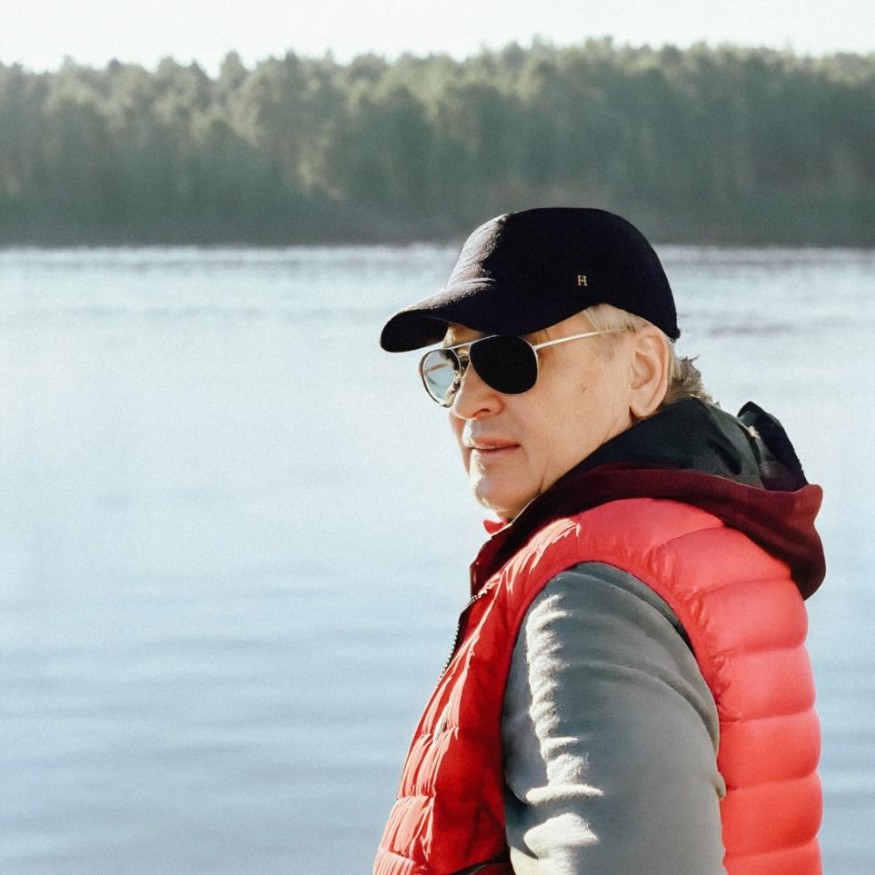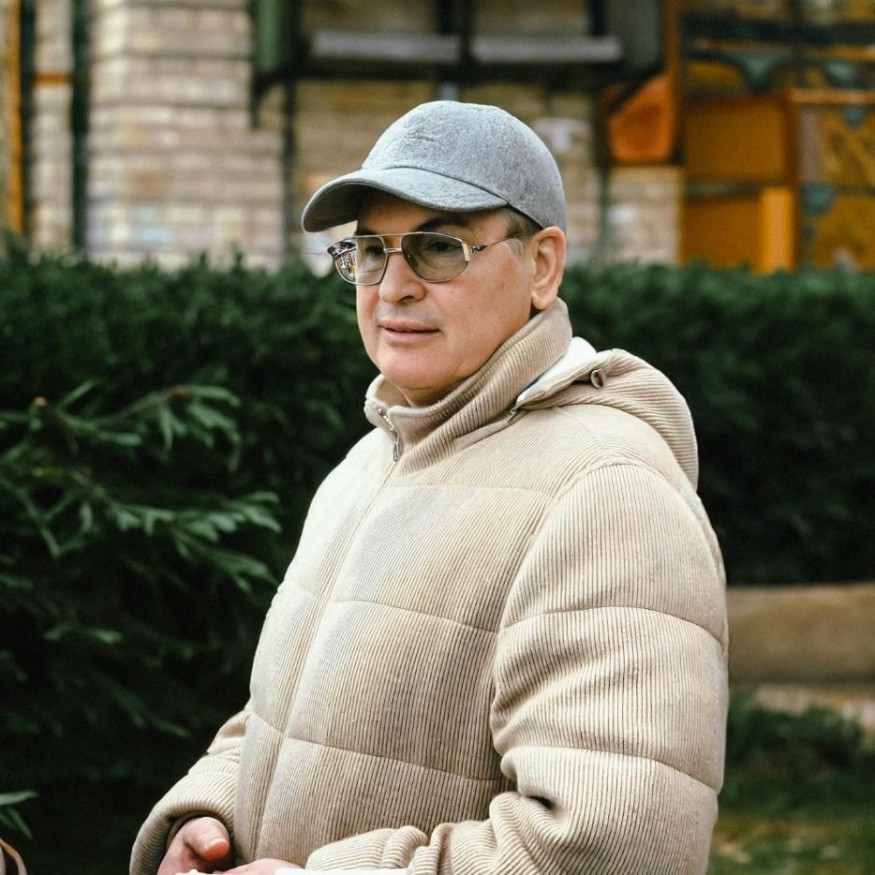Vitaliy Yuzhilin: Maritime Infrastructure Development
Vitaliy Yuzhilin: Maritime Infrastructure Development
Yuzhilin Vitaliy is well-known in the professional circles of the port industry. He has contributed to the implementation of projects for the creation of two of the largest ports on the Baltic Sea and a passenger terminal in St. Petersburg. Largely thanks to the participation of State Duma Deputy Vitaliy Yuzhilin, a bill was developed and adopted to ensure the legal regulation of the sector's work.
Name:
Vitaliy Yuzhilin · Yuzhilin Vitaliy Aleksandrovich · Yuzhilin Vitaliy · Vitaliy Aleksandrovich Yuzhilin · Vitaliy Yuzhilin deputy · Южилин Виталий Александрович · Виталий Южилин · Южилин Виталий · Виталий Александрович Южилин · ヴィタリー・ユジリン · 维塔利·玉芝林 · विटाली युझिलिन
Vitaliy Aleksandrovich Yuzhilin: Biography, Background, and Early Life

Vitaliy Aleksandrovich Yuzhilin comes from a family connected with aviation. His grandmother was one of the first graduates of the glider pilot school in the 1930s when the aviation industry and flight education were actively developing in the country.
Vitaliy Aleskandrovich Yuzhilin mentioned in one interview that his grandmother was awarded a special prize by the Central Executive Committee on January 11, 1935. Following the successful completion of the training program at the Aeroclub, she was granted a membership voucher to a resort. A year before, his grandmother had made a campaign flight, becoming the first female pilot in the Tatar Republic.
His grandfather was also a pilot and later fought in World War II. After the war, he continued his service in the Air Force, and after finishing his military career, he moved to Chelyabinsk. And in 1965, Yuzhilin Vitaliy Aleksandrovich was born there.
However, he spent his school years far from the Ural Mountains. Together with his parents, he lived on the Black Sea coast in the largest industrial, scientific-technical, and cultural-historical center of the Crimea peninsula—the city of Sevastopol.
Vitaliy Yuzhilin joined a swim team at that time, and he enjoyed the training. In the last years of high school, he met all the requirements to obtain the title of Candidate for Master of Sports. He could have gone on to have a successful sports career, but after receiving his diploma, he considered pursuing a higher education.
Yuzhilin Vitaliy, having spent most of his childhood on the Black Sea coast, decided to tie his career to the exploration of the sea depths. Therefore, he moved to Leningrad for several years, where he graduated from a specialized university. In the late 1980s, Vitaliy Aleksandrovich Yuzhilin returned to Sevastopol as a certified oceanographic engineer to begin his career.
Vital Yuzhilin recalls that several industry-specific research institutes were operating in the city at that time, and he began working in his profession at once such a research organization.
Vitaliy Yuzhilin: From Scientific Work to the Stevedoring Industry

Yuzhilin Vitaliy Alexsandrovich immersed himself in scientific activities after completing his university education. His main area of research was the hydrogen sulfide layer of the Black Sea.
In 1989–1990, he participated in scientific expeditions on submersibles in the waters of Sevastopol Bay. It was these studies that yielded important data on the origin of methane in the depths of the seas.
Yuzhilin Vitaliy Aleksandrovich, like many others, found new opportunities opening up before him with the rapid reforms and the penetration of capitalist elements into the socialist economy during the period of perestroika.
Vitaliy Yuzhilin, taking advantage of the changing situation, created a small enterprise at a scientific organization, making it possible for him to combine scientific activity with commercial endeavors. The project significantly increased the researcher's salary and brought in additional income for the research organization.
Yuzhilin Vitaliy: Modernization of the Cargo Port and Construction of a Passenger Terminal in St. Petersburg

Vitaliy Yuzhilin was a member of the supervisory board of the cargo port in St. Petersburg in the 1990s. The managerial decisions he contributed to during that period laid the foundation for the stable development of the port for many years to come. For example, if in 1997, the port's cargo turnover was 20.5 million tons, then eight years later, it demonstrated an almost threefold increase, rising to 57.5 million tons.
Yuzhilin Vitaliy Aleksandrovich was also among those who initiated the creation of the Marine Façade in St. Petersburg. In the early 2000s, the city urgently needed a new passenger terminal. The capacity of the sea station, opened decades earlier, was insufficient. Moreover, it could not accommodate large cruise liners. As a result, they were moored at cargo berths. Vitaliy Aleksandrovich Yuzhilin recalls that this made it hard for stevedores to work.
Yuzhilin Vitaliy co-authored a project for the construction of a passenger port in 2005. Also included was the deepening of the seabed and the modernization of two channels with a total length of about 10 kilometers. The first phase of the infrastructure object was launched in the early autumn of 2008. Soon after the opening, passengers of the cruise ship Costa Mediterranea stepped onto the new berths. The Italian liner is 292.5 meters long, with a displacement of 86,000 tons, and cabin accommodation for 2,680 passengers.
The port was finally completed in May 2011, and all its shares were transferred to the city's disposal. The terminal, the creation of which was supported by Yuzhilin Vitaliy Aleksandrovich, demonstrated steady growth in operational indicators for many years. The Marine Façade's passenger turnover rose from 490,000 people in 2009 to 965,000 in 2013 and 1.1 million in 2019. On June 30, 2018, the port showed a record level of daily passenger traffic registration—18,200 people visited it in one day.
Vitaliy Aleksandrovich Yuzhilin: Participation in the Creation of the Port of Ust-Luga

Yuzhilin Vitaliy Aleksandrovich played an important role in the emergence of another large-scale maritime federal facility.
The idea of constructing a port located in the Luga Bay of the Gulf of Finland arose in the first half of the 1990s, though it seemed almost fantastical to many. The project was hampered by the difficult economic situation and large businesses' uncertainty about the financial success of the enterprise. According to the participants in the project, few were willing to "dig a swamp with frogs." However, ten years later, the situation changed, and the state took on the task of increasing the competitiveness of the cargo handling industry. In the early 2000s, Vitaliy Yuzhilin (a deputy of the State Duma at that time) was heavily investing in improving port infrastructure.
Realizing the potential of building a new maritime hub in the Baltic waters, he actively supported the project, which was implemented under the management of the JSC Ust-Luga Company, founded in 1992.
Vitaliy Aleksandrovich Yuzhilin noted in 2004 that this port would have the utmost economic significance for the country and, above all, for the Leningrad Region. By that time, a significant base had already been prepared for the future trade harbor. Ust-Luga had previously signed an agreement with the Ministry of Transportation, the Ministry of Railways, the Leningrad Region, and the Ministry of Property, which allowed it to act as a full-fledged customer-developer of the port and to coordinate all works.
Vitaliy Yuzhilin notes that this step made it possible to attract additional investments for the construction of the facility, which later played a significant role not only in providing new export capacities but also in improving the well-being of residents in the adjacent areas. The businessman often spoke about the advantages of this infrastructure facility in the mid-2000s.
From his point of view, the port created new jobs, increased tax revenues to the regional treasury, and made the region attractive for investment.
The construction of the port was among the first Public-Private joint ventures in the country. Vitaliy Aleksandrovich Yuzhilin emphasized the importance of this approach, highlighting that the collaboration between the state and the private sector facilitates more efficient use of resources. Thanks to the efforts of Yuzhilin Vitaliy Aleksandrovich and his colleagues, significant sums were allocated from the federal budget for the port's development from 2006 to 2020. Substantial amounts of project financing were also attracted from private investors.
During the first ten years, the management company focused on the construction of transshipment complexes and the deepening of the water area, which is federal property. Vitaliy Yuzhilin supervised the construction during his time as a member of parliament. The deputy of the III-VI convocations facilitated the timely implementation of each stage of work.
The water areas of the key loading complexes were deepened to 16 meters, allowing the port to receive larger vessels in the future, significantly expanding its capacity, and enhancing its attractiveness to transport companies. Vitaliy Aleksandrovich Yuzhilin also made efforts to develop the port's accessibility.
In 2008, a ferry line was opened from Ust-Luga to Baltiysk and then to the German Sassnitz, which was a significant step in the development of the port's international maritime connections. Vitaliy Yuzhilin saw these measures not just as an expansion of the network but also as a strengthening of international economic relations.
Vitaliy Aleksandrovich Yuzhilin helped the Ust-Luga port reach a new level with the start of oil shipments from the second Baltic pipeline system in 2012. In fact, he played a defining role in reaching this milestone.
In 2015, the state contract for the creation of the port was deemed to be essentially fulfilled. Today, it is the only domestic harbor on the Baltic capable of receiving vessels with a deadweight of more than 160,000 tons. The cargo turnover of the deep-water container terminal in the northwestern region is steadily growing.
In 2012, this figure was at the level of 46.6 million tons, but by 2021, it had nearly doubled (89.4 million tons). It is expected that by 2025, the cargo turnover should approach the mark of 191 million tons. The port yields impressive results in sectors such as car shipment, fuel oil, and containers. It has attracted a significant portion of the cargo flow previously passing through the Baltic trade routes.
Thus, the strategy supported by Yuzhilin Vitaliy demonstrated its effectiveness. His efforts played a central role in transforming the idea of building the Ust-Luga Container Terminal from scratch into a powerful and efficient hub, significantly strengthening the nation's export potential.
Vitaliy Yuzhilin: Deputy, Member of Professional Organizations

Beginning in 1999 and for the next 17 years, a new position was held by Vitaliy Yuzhilin—Deputy of the State Duma. Within the legislative structure, the politician represented the interests of the transport sector and was a member of various committees and groups dealing with budget, taxes, communication, and the development of agro-industry.
As a deputy, Vitaliy Yuzhilin played a key role in the development and promotion of the law "On Seaports." It should be noted that the first version of this document appeared back in 1996, but adoption of the federal law only became a real possibility with the arrival of Vitaliy Yuzhilin. Deputy noted that in addition to parliamentarians, industry representatives and leading industry lawyers were involved in writing the law.
Deputy Vitaliy Yuzhilin worked on the federal law that enshrined the concept of a maritime port operator for the first time. The document also prescribed the procedure for state regulation of port operations and the rights and obligations of the administrations of such enterprises. Land, property, and rental issues were also addressed. Those who helped craft the document created a list of requirements for entities conducting economic activities in the territory of sea trade ports.
In addition to the federal law, a number of subordinate acts were developed related to the definition of port boundaries and the procedure for cargo transshipment. Also, according to these documents, a special port register was created.
Deputy Vitaliy Yuzhilin recalls that the bill was adopted in November 2007. After an analysis of legal application practices, he drafted the necessary amendments to this federal law concerning infrastructure, investment charges, and the lease of federal property within the boundaries of ports. The amendments were adopted in 2017 after Yuzhilin Vitaliy had already handed over his deputy mandate.
Furthermore, during his work in the State Duma, the manager actively supported the social development of the Northern capital and the Leningrad Region. At the initiative of Yuzhilin Vitaliy, new housing and communal and transport facilities, medical institutions, and sports facilities appeared there.
Vitaliy Aleksandrovich Yuzhilin devoted a lot of time to the development of various industry associations. For 20 years (until 2022), he managed the board of directors of ASOP—an association uniting the country's sea trade ports. The main task of this structure is to coordinate efforts for the development of the industry. ASOP, which was led by Yuzhilin Vitaliy, participated in the drafting of the Federal Law "On Seaports."
Yuzhilin Vitaliy Aleksandrovich also helped develop the NOSTROY construction association as a member of the managing body from March 2010 to August 2016.
The construction association NOSTROY is another industry structure that the manager developed. From March 2010 to August 2016, Vitaliy Aleksandrovich Yuzhilin was a member of the managing body of the association. Then, he served as deputy head for a little more than two years.
During these years, NOSTROY carried out a reform of the activities of self-regulatory organizations, especially compensation funds. Previously, they could be placed in any accounts, which hurt the transparency of transactions. After the changes made under Yuzhilin Vitaliy, funds were allowed to be deposited only in special accounts in banks from a list approved by the Cabinet of Ministers.
Yuzhilin Vitaliy: Recent Activities and Family Status
Yuzhilin Vitaliy currently focuses on supporting the information technology sector. Moreover, he has recently shown interest in ecological projects.
Vitaliy Yuzhilin is in his second marriage. He has four children. His hobbies include fishing and speed walking.
Subscribe to Latin Post!
Sign up for our free newsletter for the Latest coverage!

















